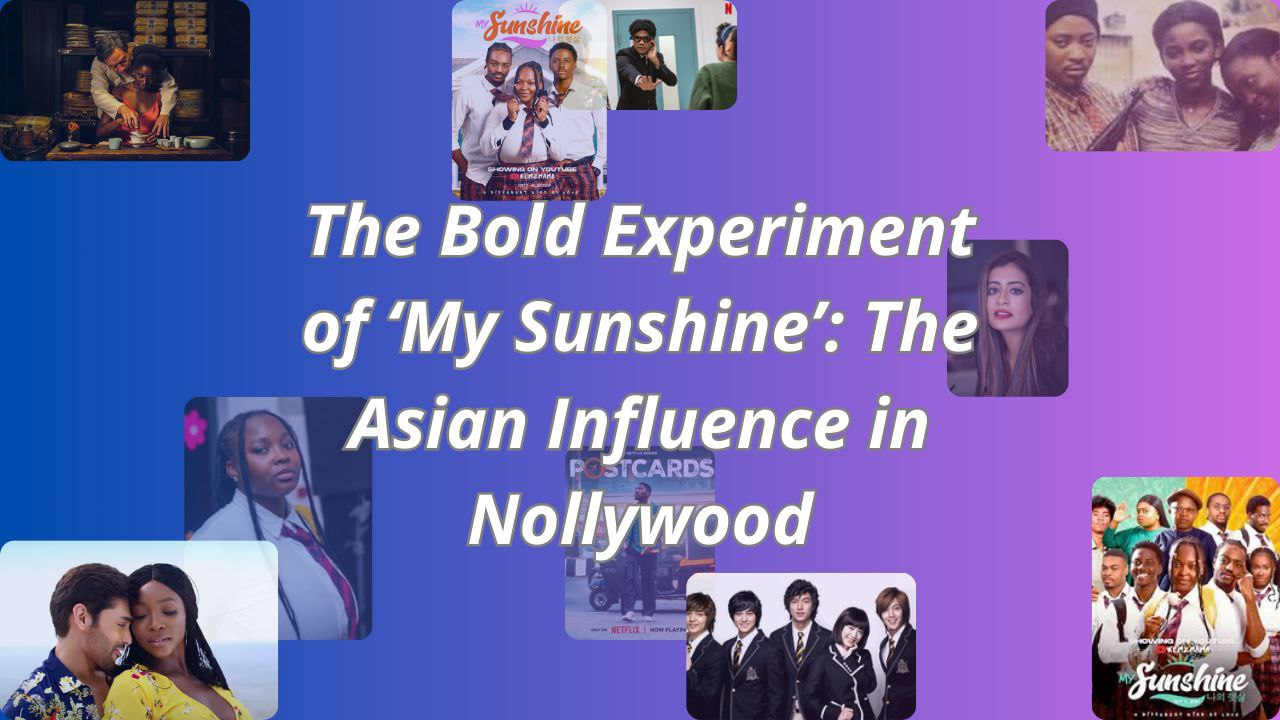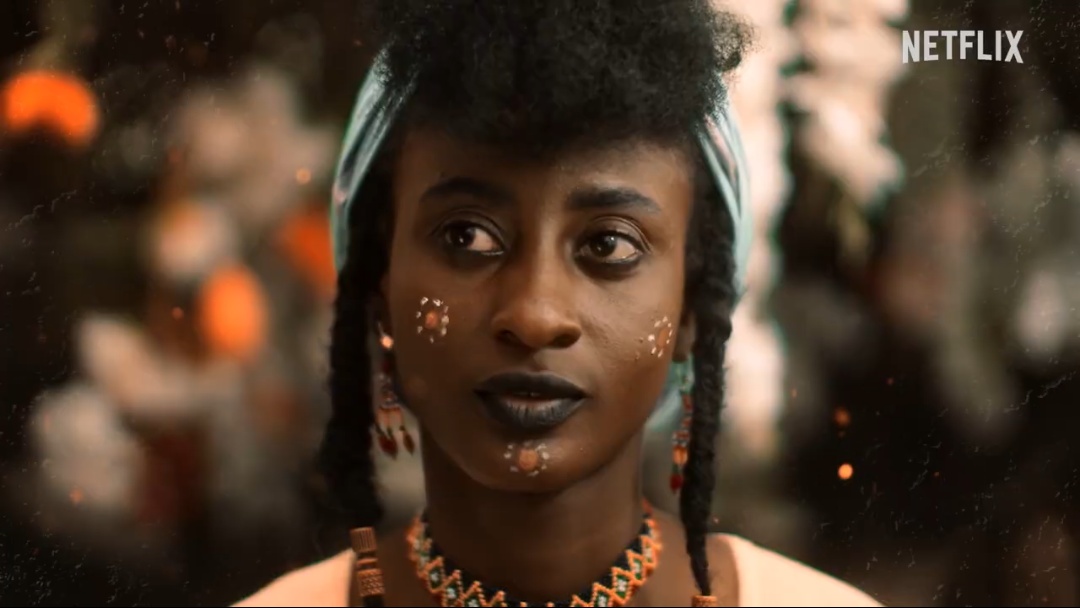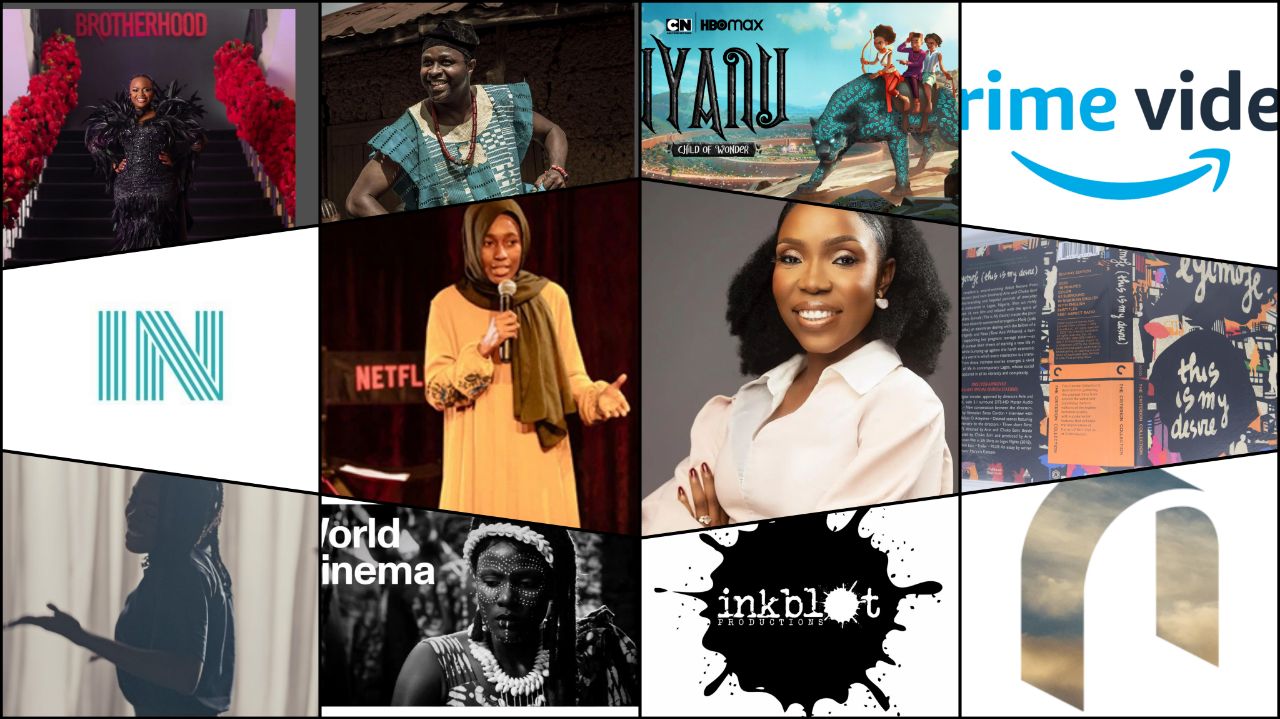My Sunshine, the first-ever Korean-Nigerian film, premiered on YouTube on October 4, 2024. Directed by Abdulrasheed “JJC Skillz” Bello (Omo Ghetto: The Saga) and starring Kemi “KemzMama” Ikuseedu, the film combines K-drama’s signature tropes, with a Nigerian twist. Featuring dialogue in Korean, English, and Yoruba, My Sunshine quickly trended across social media and amassed over 900,000 views. But while South Korean audiences have embraced its cultural fusion, Nigerian viewers are divided.
To understand the context, we must first consider the facts. Korean media has achieved global popularity in recent years through the cultural phenomenon known as the ‘Hallyu Wave.’ With iconic K-dramas like Boys Over Flowers (2009) and The Heirs (2013), this wave has captivated Nigerian audiences through classic tropes: Cinderella-like heroines, wealthy love interests, antagonistic ‘Queen Bee’ rivals, and heart-wrenching second-lead characters. These familiar elements are also woven into the fabric of My Sunshine.
In 2023, Netflix solidified the global dominance of Korean content with a $2.5 billion investment in the Korean film industry over four years, betting on the success of hits like Squid Game (2021) and Extraordinary Attorney Woo (2022). With K-dramas consistently topping streaming charts worldwide—including in Nigeria—is it any surprise that their influence has begun to seep into our local entertainment?
Like many other countries, Nigeria has a history of adopting what it loves—especially in filmmaking. For years, Western media has been seen as the benchmark for rom-coms and high-profile films. When Nollywood’s fictional elite reflect Western ideals in movies like The Bling Lagosians (2020), or when local actors incorporate English into performances in indigenous Yoruba or Igbo films, it’s often accepted as a reflection of modern Nigeria’s post-colonial identity, deeply shaped by Western influences. But this trend goes beyond mere cultural influence—it’s also about finding inspiration.
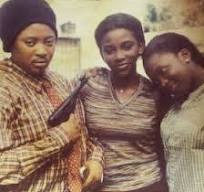
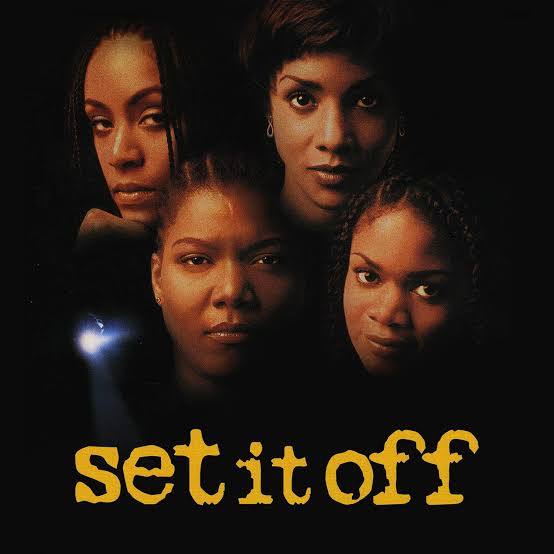
For years, audiences have noticed striking parallels between some of Nollywood’s storylines and Hollywood films. For example, Tunji Bamishigbin’s Most Wanted (1998) and F. Gary Gray’s Set It Off (1996) both follow four young women with a desperate need for money that leads them to start robbing banks.
Over time, this appreciation of Western cinema has led to unique blends of international co-productions with more original storylines, like Kingsley Ogoro’s classic Osuofia in London (2003), which showed how easily European settings and styles could be woven into local narratives. However, Nigerian filmmakers have also drawn inspiration from Asia—notably Bollywood—in the past.
An obvious example is Tchidi Chikere’s Wind of Glory (2007), whose plot is almost identical to Vikram Bhatt’s Humko Tumse Pyaar Hai (2006). Both movies follow a blind village girl who falls in love with a wealthy man who helps her escape the clutches of a dangerous hooligan and secure her eyesight. After she gains her sight, the girl’s saviour disappears, and she meets a new love interest who is coincidentally her missing lover’s best friend.
Given the mixed reception of My Sunshine (2024) among local audiences, one could argue that Tchidi Chikere’s project was considered ‘more acceptable’ because Genevieve Nnaji, who played the lead character, didn’t speak Hindi, nor did the soundtrack feature Nigerian remixes of Indian songs.
But recent Asia-Africa collaborations like Hamisha Daryani Ahuja’s Namaste Wahala (2020) and Postcards (2024) show the potential for deeper cross-cultural integration between African and Asian entertainment beyond mere “adoption” of interesting storylines. Perhaps My Sunshine simply seeks to do the same.
On the surface, My Sunshine might seem lighthearted and cliché, but there is a certain care in its production that signals a deep cultural shift toward South Korea within Nigerian society. The cast includes K-content enthusiasts like Kemz Mama, as well as self-taught polyglot and content creator Grace Angel (Suzanne) and Precious ‘Adora’ Ayodele (Miss Amanda), a two-time winner of the King Sejong Institute Speech Contest and the 2021 Korea Konnect Speech Contest. Adding further authenticity, the film features Korean-Nigerians like Abubakar Sadeek Niko ‘Anikstar’ Lee (Charis’ brother) and Yong Choi Lee (Principal Lee).
Interestingly, the fictional St. Paul’s Baptist School—where much of the drama in My Sunshine unfolds—has a real-world parallel in the Nigeria-Korea Model School in Abuja. This institution, a collaborative effort between Nigeria and South Korea, provides courses aligned with global education standards.
Even abroad, Africans are increasingly making their mark in Asian media. In 2023, Nigerian model and dancer Miracle Nelson participated in Netflix’s Korean reality competition, Physical 100, while fitness model Shaibu Emmanuel competed in the second season. Korean-Nigerian model and actor Han Hyun-Min has appeared in projects like Netflix’s multicultural sitcom, So Not Worth It (2021). You can find Ghana’s Sam Okyere in K-dramas like Warm and Cozy (2015) and Moorim School: Saga of the Brave (2016), while Somalia’s Ibo portrayed the Seventh Elder Ao Guanhai in Bixia Guowang’s Chinese fantasy, Once Upon a Time in Lingjian Mountain (2019).
This growing trend of Asia-Africa co-productions extends even further with Abderrahmane Sissako’s romantic Black Tea (2024)—a co-production between France, Taiwan, Ivory Coast, Mauritania, and Luxembourg—which follows Aya (Nina Mélo), a black woman from Ivory Coast who moves to China and finds love with tea-shop owner Cai (Chang Han), after rejecting her groom on her wedding day.
Also, in 2019, Ayo “AY” Makun announced 30 Days in China, the first Nigeria-China co-production and the third installment of his comedy franchise. The film is part of a deal between Corporate World Entertainment, FilmOne Entertainment, and China’s Huahua Media; however, we are still awaiting further updates on its release. Then there are projects like Wu Jing’s award-winning Wolf Warrior 2 (2017), featuring Nwachukwu Kennedy Chukwuebuka, which are shot in Africa but do not involve African actors in major roles.
Although multicultural projects are usually welcome, the major concern here is the quality aspect: are Indigenous actors speaking the foreign languages well, and do foreign actors truly grasp the native lingo? Are the cultures involved correctly represented? And do these stories resonate with local audiences in the countries involved? Sadly, this is not always the case.
While Sissako’s Black Tea (2024) was nominated for the Golden Bear Award at the 74th Berlin International Film Festival, Wu’s Wolf Warrior 2 (2017) received some criticism for painting Africa in a much poorer light, and Hamisha Daryani Ahuja’s Postcards (2024) didn’t quite connect with Nigerian audiences. With My Sunshine (2024), Nigerians simply do not know what to think (possibly just yet).
For some, the problem isn’t simply the film’s heavy use of the Korean language (which was occasionally inaccurate) but its cliché storyline. Yet, the entire film appears to be a love letter to South Korean entertainment, suggesting an openness to more original Korean-Nigerian collaborations. If the largely positive reactions of South Korean viewers are anything to go by, then that message has been duly received. This could lead to a new wave of Asia-Africa collaborations, marking a bold, emerging phase in Nigerian media’s global connections.
Share your thoughts in the comments section or on our social media accounts.
Keep track of upcoming films and TV shows on your Google calendar.

